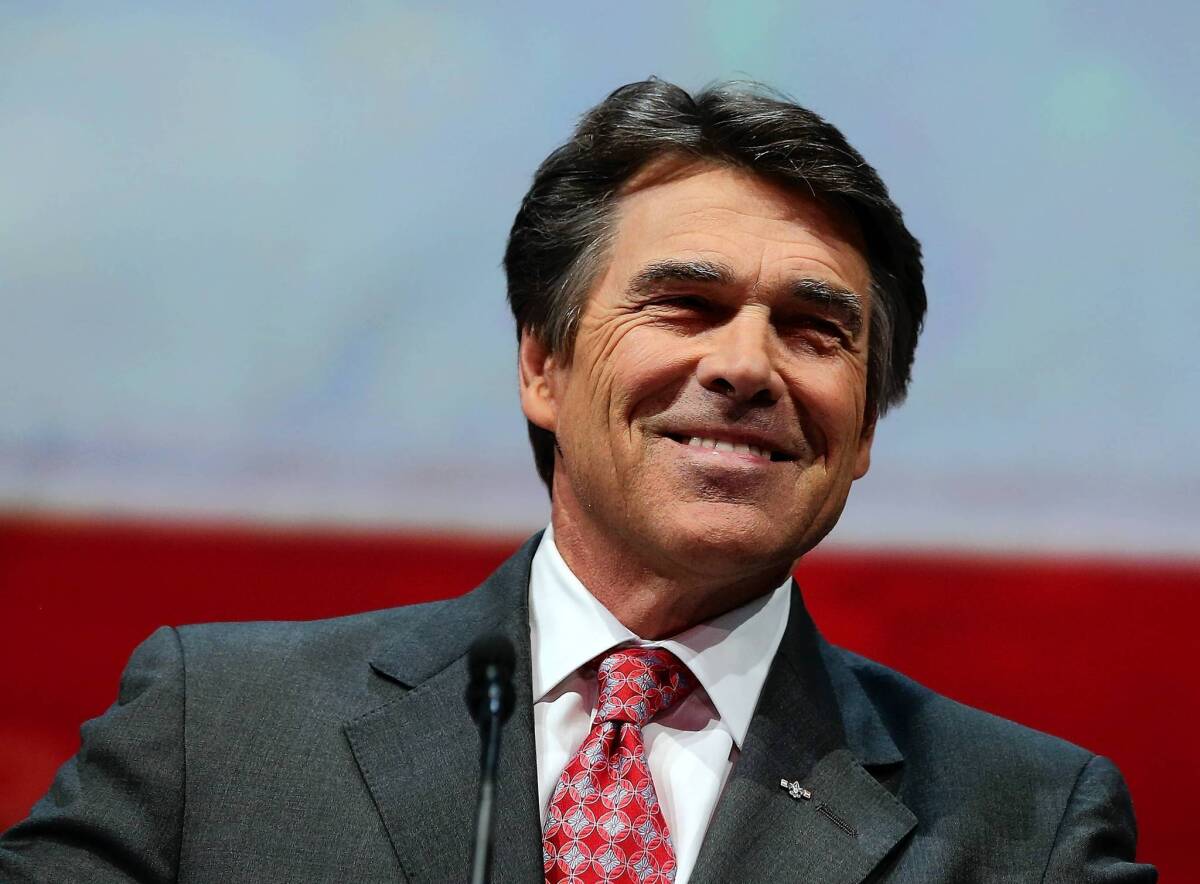Rick Perry won’t seek reelection as Texas governor

- Share via
Texas Gov. Rick Perry announced Monday he would not seek reelection in 2014, a move that will end his reign as the longest-serving chief executive in state history and one of the most powerful.
He did not rule out another run for president.
Speaking to a hand-picked audience of supporters in San Antonio and quoting from the book of Ecclesiastes, Perry said there was a time for everything and, for him, “The time has come to pass on the mantle of leadership.”
In a voice that sometimes quavered with emotion as he recounted his decade-plus in office, Perry said he would “work and pray” to determine his path forward. “Any future considerations I will announce in due time,” he said.
Perry’s decision against seeking a fourth full term should have little, if any, effect on the nascent 2016 White House contest. It has been widely assumed that Perry, 63, might make another try for the GOP presidential nomination, whether or not he was still serving as governor.
Although leaving office in January 2015 could diminish his fundraising capacity, it would also allow Perry more preparation time than he took in the lead-up to his gaffe-filled 2012 campaign, the only election loss of his more than three-decade-long political career.
After surging into the lead in national polls, Perry’s presidential campaign sank after a series of poor debate performances, capped by his infamous “oops” moment when he forgot one of three federal agencies he promised to eliminate as president. His image has never fully recovered.
Perry’s decision to step down will have a much greater effect in Texas, where he has accrued unprecedented power; thousands of political appointees in the state — from Supreme Court justices to the lowliest commissioner — owe their jobs to Perry, who assumed the governorship in 2000 when George W. Bush was elected president.
His long tenure also put a ceiling over a rising generation of Texas politicians, many now eager to move up. The fresh faces are unlikely, however, to produce much partisan turnover. The odds-on favorite to succeed Perry is the state’s Republican attorney general, Greg Abbott, who avoided a costly and divisive primary battle with the governor’s decision to stand aside. Abbott, a Perry ally, issued a laudatory statement praising his time in office.
Democrats expressed predictable delight at Perry’s announcement. But the party is struggling to find a viable candidate to replace him. Its brightest new star, state Sen. Wendy Davis, became an instant national celebrity when her filibuster single-handedly stopped an effort to tighten the state’s abortion laws.
In the two weeks since, the Fort Worth lawmaker has been urged to run for governor in 2014. But Texas remains a deeply conservative state and Davis, while expressing interest in seeking statewide office, would face a steep climb.
Without mentioning Davis by name, Perry alluded to the abortion fight in his remarks Monday. He was originally expected to reveal his plans by the end of June, but delayed his announcement after calling a special legislative session that ended with Davis’ filibuster. Perry immediately scheduled a follow-up.
Speaking before a backdrop of heavy machinery, Perry said he would continue “working hard to do what’s best for Texas,” calling lawmakers back into session as often as needed to pass some of the toughest abortion restrictions in the country.
“Texas is and will remain a strong pro-life, pro-family, pro-freedom state,” Perry said.
More to Read
Sign up for Essential California
The most important California stories and recommendations in your inbox every morning.
You may occasionally receive promotional content from the Los Angeles Times.














